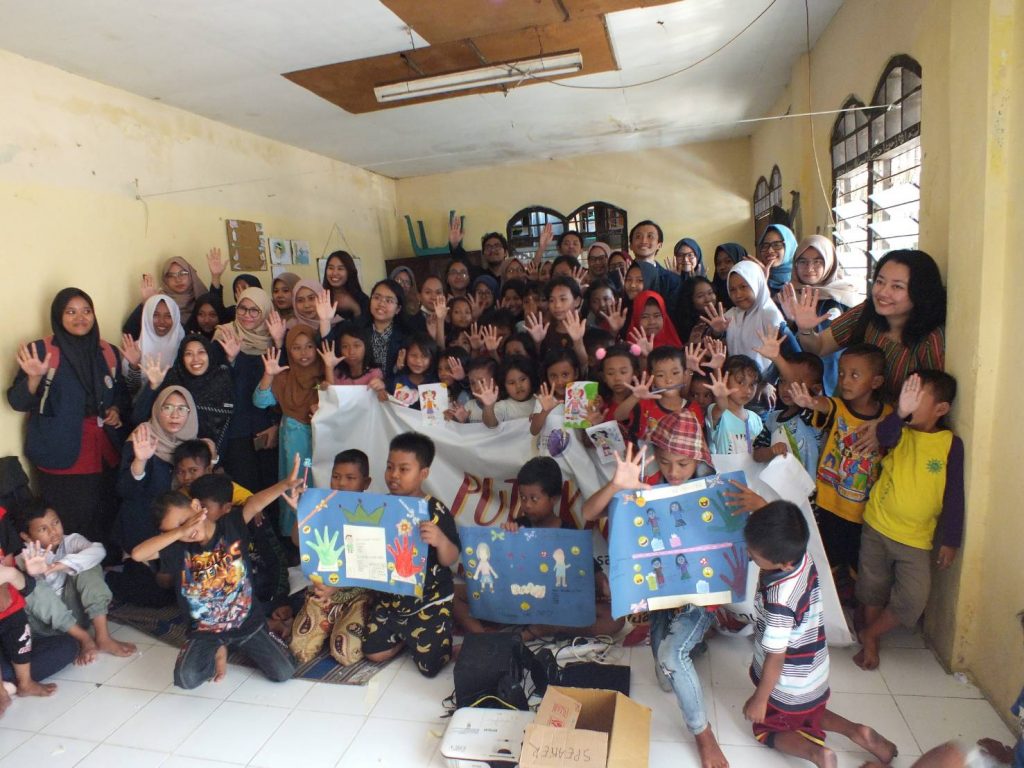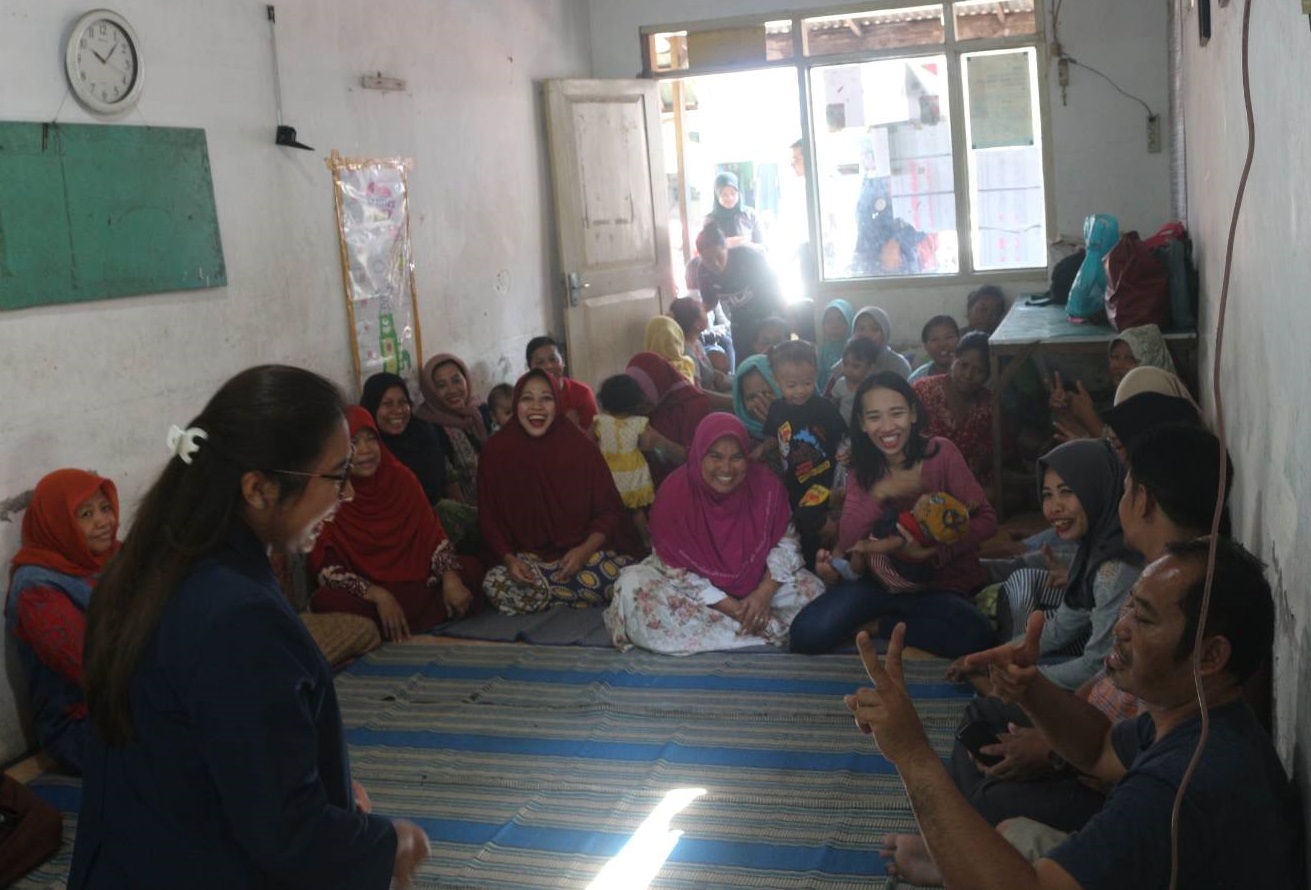UNAIR NEWS – Universitas Airlangga (UNAIR) Faculty of Psychology (FPsi) students held a community service in Gundih Village, Bubutan Sub-District, Surabaya City. The program was called “UNAIR Psychology Response to Stop Violence in Children and Women” (PUTUSKAN). It was held on Sunday, May 19, 2019.
This community service program focuses on providing education on Domestic Violence (KDRT) to Gundih residents. This community service program is a practice for a forensic psychology course.
One of the representatives of FPsi community service team, Siti Rochma, explained that the program was for mothers and childs. There were 25 people and 40 people respectively.
The Gundih residents were pleased with the activity held by FPsi because the information on domestic violence is very useful for mothers in Gundih, especially young mothers.
Besides introducing the basic knowledge about domestic violence, the activity also build awareness if they or others experience violence. The other objective is to achieve PUTUSKAN tagline, which is “Healthy Family, Empowered Family, Anti Violence Family”.
“The program for mothers disseminated information on the basic knowledge of domestic violence, from definitions, types, legalities, impact of domestic violence, and ways to prevent domestic violence, “said Siro. “Hopefully, mothers can detect any domestic violence around them or if they are victims of domestic violence,” he added.

JOY of Gundih Village mothers and children during community service. (Photo: By courtesy)
The community service also introduced children to the authority of their bodies so they can protect themselves. Self-protection encourages them to guard their bodies from others, especially if unwanted things happen.
“Children took part in activities knowing which parts of the body may and may not be touched by others,” said Siro.
Children were also taught how to deal with strangers who will touch their prohibited body parts. They were taught to say stop, run, and talk to trusted adults.
Children are divided into two large groups. Then, each was given the task of coloring and sticking stickers to mark body parts that others may and should not touch.
Coloring activities were intended for pre-school students until grade 2 elementary school. Not only coloring, grade 3 elementary school and older also made posters as creative as possible. (*)
Author: Aditya Novrian
Editor: Binti Q. Masruroh





